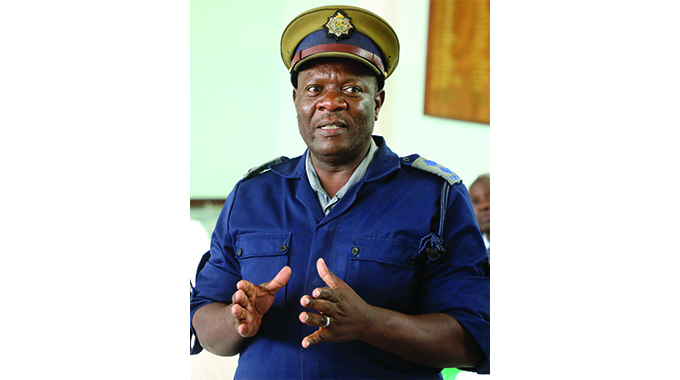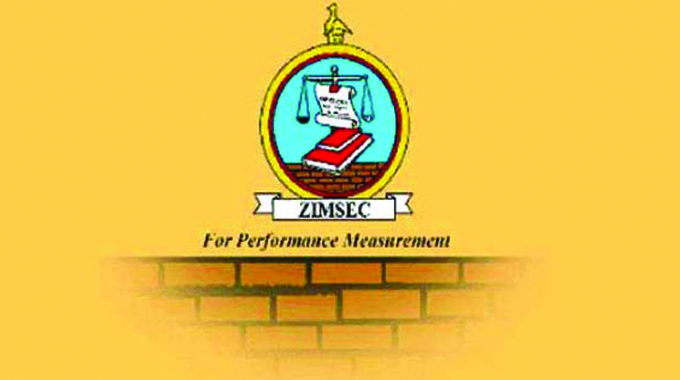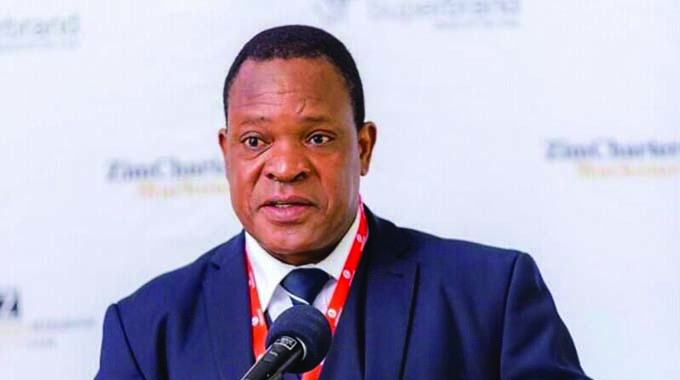
Fungi Kwaramba in Mt Darwin
A CHOPPER flying low in the skies of Mt Darwin had thousands of onlookers heading to Mt Darwin Secondary School to witness soldiers in gravity defying rehearsals.
Expectedly, it was children who formed the biggest group that ran to the school grounds to watch and marvel at the rehearsals that will be on display tomorrow as Zimbabwe marks 43 years of independence.
But before that, President Mnangagwa will today host a Children’s Party that will be attended by no less than 7 000 children drawn from the country’s 10 provinces, plus another 400 each from Mashonaland Central’s eight districts.
It’s an Independence Day with a difference, as it is being taken to the people in line with President Mnangagwa’s vision of leaving no one and no place behind.
In line with Government’s devolution and decentralisation thrust, the 2023 Children’s Party celebrations will be held at Pfura Stadium and this year Independence Day is being celebrated under the theme “Nyika Inovakwa nevene vayo; Ilizwe lakhiwa ngabanikazi balo”.
The helicopter certainly elicited different emotions; for the young it was exciting but for the elderly it likely evoked painful memories of the Rhodesian enemy forces during the liberation struggle, who bombed innocent civilians with reckless abandon. But that of course is now all history, thanks to the gallant efforts of the country’s liberators, some late and a few like President Mnangagwa who still stand among us.
Therefore the excitement that was palpable at Mt Darwin Secondary School is because Zimbabwe is now free and its children enjoy these liberties without let or hindrance.
In front of scores of onlookers, the country’s flags, 43 in total, were hoisted high, flapping gently with the breeze, and in their sum total symbolising the 43 years of the country’s independence.
It was no easy walk though to Uhuru, thousands lost their lives, some lost limbs, others their sons and daughters.
A 65-year-old woman, Mrs Martha Mhuriro, was about 23-years-old when the country’s flag was hoisted at Rufaro Stadium on April 18 in 1980. She never had the chance to witness the independence festivities, but her quest has been fulfilled and she said tomorrow she will be among the multitudes who will be at Mt Darwin’s Pfura Stadium.
“We have been honoured as a province, this is the first time in my life to attend the national independence celebrations. I would like to thank President Mnangagwa for taking us on board,” said Mrs Mhuriro.
A teenager of 17 years, who was born long after the country’s Independence, said he is aware of the country’s arduous journey to Uhuru.
“We are celebrating the most important day in the life of Zimbabwe, my grandfather was a war veteran and he always taught us to be conscious of our past. I will certainly be in the stadium to see the President and other heroes of our struggle,” said Tatenda Mayeresa.
As darkness set in, residents of this town left for their homes to sleep the night away and be ready to witness the country’s 43rd independence celebrations that will be preluded by the Children’s Party today.
Home Affairs and Cultural Heritage Minister Kazembe Kazembe said the province is ready.
“Everything is now in order, we are ready to host the Independence celebrations. Everybody is very excited and I would like to thank his Excellency Cde ED Mnangagwa for bringing Independence celebrations to Mashonaland Central. Mt Darwin has a new look now; roads, grounds, billboards and everything is now in place,” said Minister Kazembe.
As part of the festivities, the country’s two biggest football teams, Highlanders and Dynamos, are now in town for the game that will be played tomorrow in a new look Mt Darwin High School Stadium. As the two teams’ buses made their way to Mt Darwin, they were welcomed by multitudes of people in Mazowe, Bindura and Concession.
“We had a meeting which was chaired by Minister of Local Government Cde July Moyo. Minister of State for Mashonaland Central Monica Mavhunga was there, Minister of Information, Publicity and Broadcasting Services Monica Mutsvangwa was there, Minister of Arts and Sports Kirsty Coventry was there, in fact every ministry was represented. Members of Politburo were also there including the Mashonaland Central leadership. We were simply checking progress and everything is now in order. Rehearsals are taking place, members of security forces are doing rehearsals including children that will be participating tomorrow (today),” said Cde Kazembe.
This is the first time that Independence Day will be held in a rustic setting and it promises to be one to savour and cherish for ages to come.








